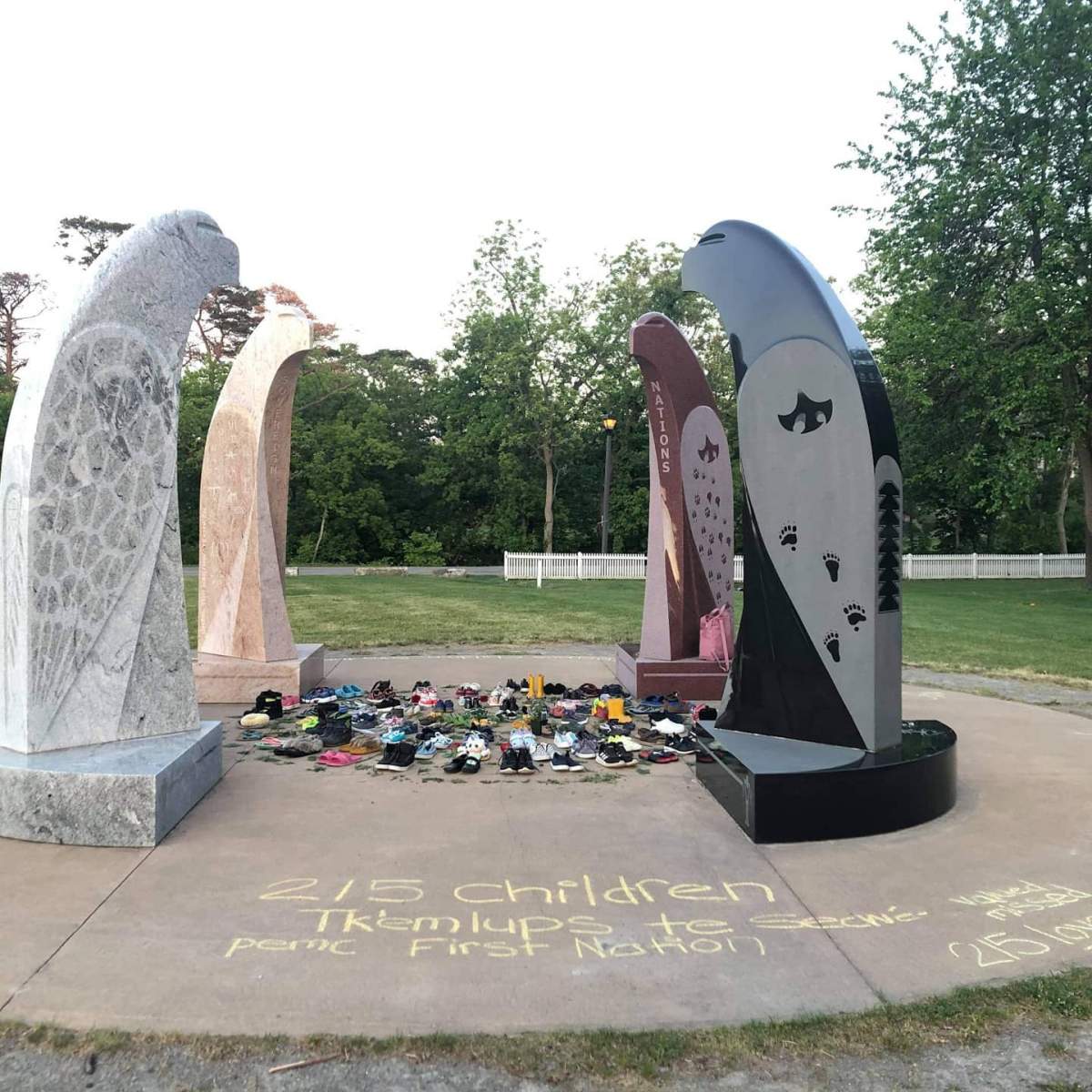A gathering is planned for Canada Day, at Hamilton’s Pier 4 Park, open to the Indigenous community and its allies.

It’s being called the Day of Love, planned from 1 p.m. to 5 p.m., as an alternative to Canada Day.
Organizers, in a social media post, say they will not be celebrating Canada but rather “creating space for song, for prayer, for medicines and for laughter.”
Dawn Lavell-Harvard, president of the Ontario Native Women’s Association, says she’s seen a shift in attitude and understanding in Canadian society after the discoveries of unmarked graves at residential school sites in B.C. and Saskatchewan.
“Now that people really, truly understand the atrocities that happened,” said Lavell-Harvard, who spoke with CHML as part of A Day To Listen on June 30, “this one is hard to ignore.”

Get daily National news
“Canadian society has been really supported in being able to ignore it, up until this point; it has been very well hidden,” she said.
Lavell-Harvard stressed that what’s needed now is support for healing.
“With every new grave we find, communities and survivors of residential schools are being re-traumatized, are being taken right back.”
At the political level, Lavell-Harvard said she finds it “absolutely appalling that the Canadian government will talk about their sorrow for these children’s bodies that have been found, and at the same time, continue to discriminate against First Nations children on reserves by underfunding their education.”
“They receive significantly less money than non-Indigenous children in the same province,” said Lavell-Harvard.
Meanwhile, a policy analyst with Ryerson University’s Yellowhead Institute suggests the recent discoveries in B.C and Saskatchewan precipitating the cancellation of Canada day celebrations in some municipalities can be “an awakening” of sorts about the plight of Indigenous peoples across the nation.
“The more people that are listening, and the more kind of comfortable people get with having those conversations, we’re building momentum towards changing Canada itself,” Courtney Skye told Global News.
Skye says conversations with Indigenous Peoples to resolve big issues such as “unwanted development,” as seen with 1492 Land Back Lane, and talks around Canada’s history are something governments and communities need to address with some urgency.
“The sense of urgency to devise a plan to help (them) cope with colonialism and to have a vision of their future that’s self-sustaining,” Skye said.








Comments